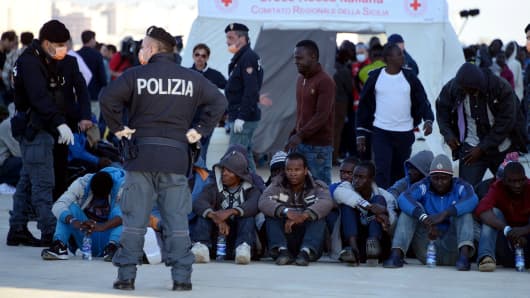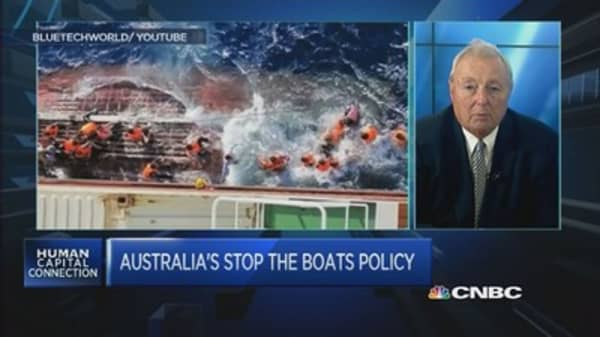The stepped-up efforts to halt a lethal wave of northward migration come as search and rescue operations have brought hundreds of bodies ashore in a series of deadly shipwrecks carrying migrants seeking passage to Europe. The immigrant wave is being driven by strong demand for passage from people fleeing civil unrest, persecution or chronic unemployment in their home countries.
"Europe is declaring war on smugglers," AP quoted the EU's top migration official, Dimitris Avramopoulos, who was in Malta to attend the funeral of 24 migrants who perished at sea.Italy's proximity to Africa has made it another favored smuggling route. Italian ships recently rescued some 10,000 migrants in a single week, according to the IOM, bringing the total number of migrants reaching Italian shores to more than 21,000 so far this year. In 2013, more than 26,000 migrants arrived through April 30, the IOM said, citing the Italian Ministry of Interior figures.
Though northern African ports are popular transit points, millions of refugees are making their way from trouble spots across the continent, according to data collected by the United Nations High Commissioner for Refugees. Many more are displaced in their home country, unable to flee or seek asylum abroad.







